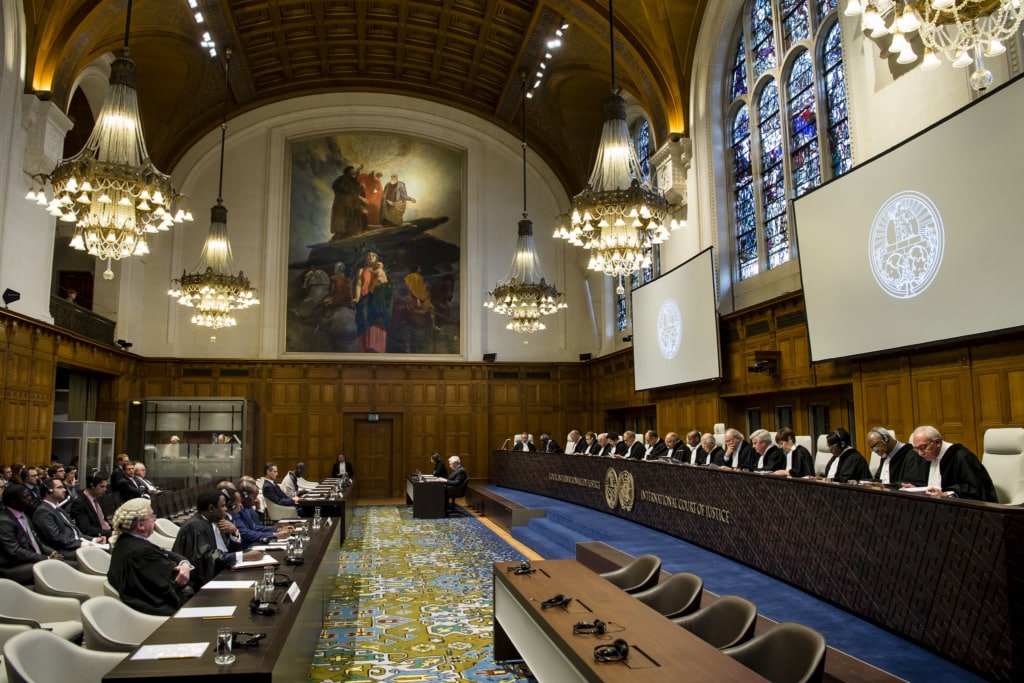Why Canada’s Terrorism Exception Does Not Violate International Law
Like the United States, Canada has an exception in its State Immunity Act (SIA) for state supporters of terrorism. Canada has put Iran and Syria on the list of states against which claims for terrorism may be brought in Canadian courts. Under the SIA, Canadian courts have found Iran liable for shooting down a Ukraine…
Continue ReadingAnother Thoughtful Decision Limiting Email Service
The interplay between Rule 4(f) and the Hague Service Convention (HSC) is intricate and challenging. In a recent order, U.S. Magistrate Judge Diana Song Quiroga of the Southern District of Texas said a lot of smart things about this interplay that bear repeating by other district courts. Three Cheers The judge denied a request in…
Continue ReadingDistrict Court Permits Clean Air Act Action Against Canadian Company
The presumption against extraterritoriality is the principal tool that U.S. courts use to determine the reach of federal statutes. Last year, in Abitron Austria GmbH v. Hetronic International, Inc. (2023), the U.S. Supreme modified the presumption by requiring conduct relevant to a provision’s focus to occur in the United States in order for the application…
Continue ReadingWe Still Don’t Know What the State Department Thinks About the Transit Pipelines Treaty
In Bad River Band v. Enbridge Energy Co., the District Court for the Western District of Wisconsin (Judge William M. Conley) found that a pipeline owned by a Canadian company, Enbridge Energy, trespasses on the reservation of the Bad River Band of Chippewa Indians. He ordered the pipeline to shut down by June 16, 2026….
Continue ReadingWhat Does the State Department Think About the Transit Pipelines Treaty?
On February 8, 2024, the Seventh Circuit heard argument in Bad River Band v. Enbridge Energy Co. Enbridge, a Canadian company, owns and operates a pipeline that transports light crude oil and natural gas liquids from Canadian oil fields to the United States and Ontario. The Bad River Band of Chippewa Indians sued Enbridge for…
Continue ReadingFurther Thoughts About Terrorism Exceptions and State Immunity
As regular readers know, Iran has sued Canada at the International Court of Justice (ICJ), arguing that the terrorism exceptions in Canada’s State Immunities Act (SIA) violate customary international law. The United States also has terrorism exceptions in its Foreign Sovereign Immunities Act (FSIA) for actions against state sponsors of terrorism and for actions based on international terrorism in the…
Continue ReadingGovernmental and Non-Governmental Acts in Terrorism Exceptions to Sovereign Immunity
The Islamic Republic of Iran (“Iran”) brought proceedings in the International Court of Justice (“ICJ”) against Canada on June 27, 2023, alleging that Section 6.1(1) of Canada’s State Immunity Act (SIA), its “terrorism exception,” violates Iran’s sovereign immunities from jurisdiction and enforcement under customary international law. Section 6.1(1) creates an exception to the jurisdictional immunity…
Continue ReadingWhy Terrorism Exceptions to State Immunity Do Not Violate International Law
[Editor’s Note: This post also appears at Just Security.] On June 27, 2023, Iran sued Canada at the International Court of Justice (ICJ), arguing that the terrorism exceptions in Canada’s State Immunities Act (SIA) violate customary international law. As Professor Maryam Jamshidi noted at Just Security, it seems that the main target of Iran’s action…
Continue ReadingMicrosoft’s Dispute Resolution Provisions Are a Mess
The Microsoft Corporation (“Microsoft”) and its foreign subsidiaries buy goods and services from companies all around the world. To streamline the contracting process, Microsoft has drafted a purchase order that contains standard terms and conditions. This purchase order – viewable here – is used by Microsoft and its subsidiaries in 109 different countries. This agreement…
Continue Reading








